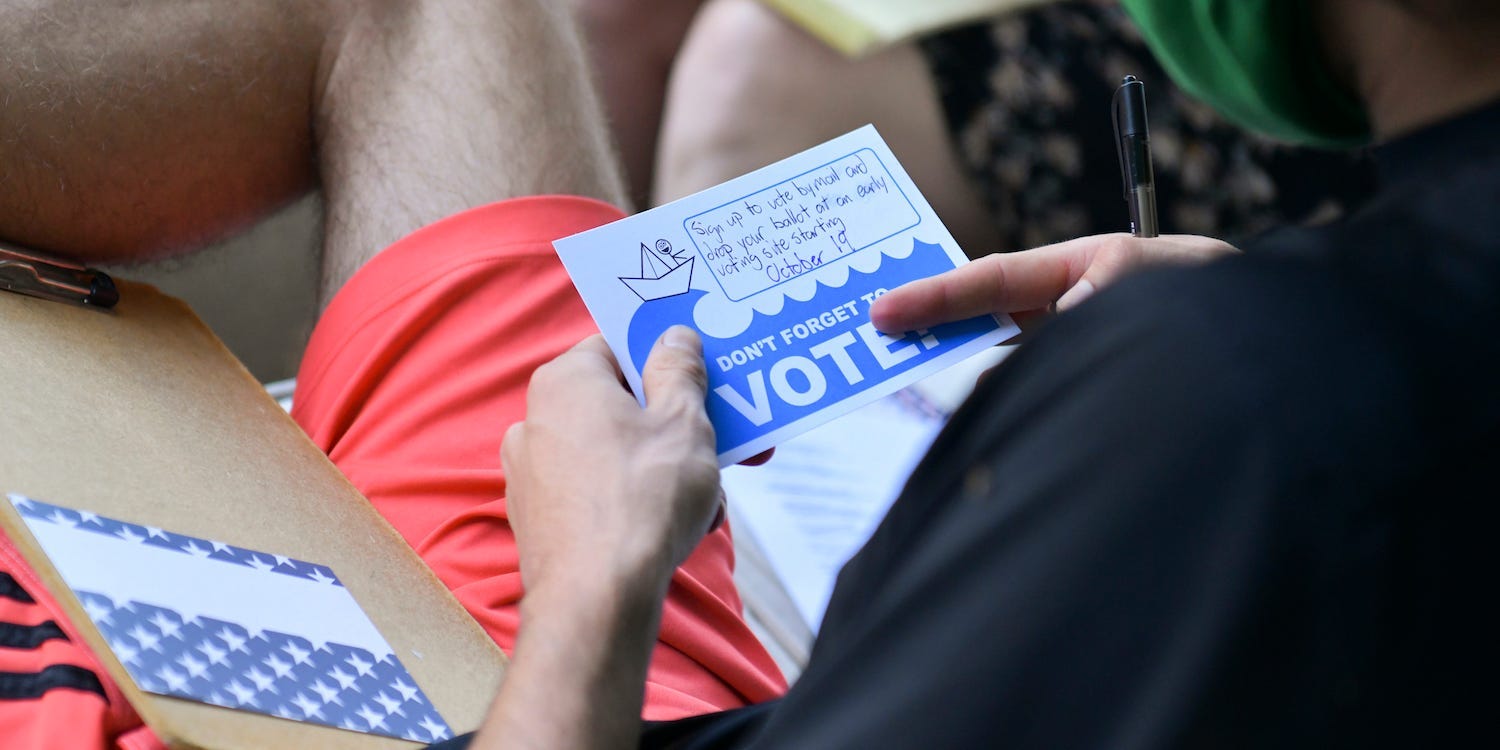
Rodin Eckenroth/Getty Images
- Most states will allow all voters to vote from home in this November’s presidential election due to the COVID-19 pandemic.
- Just five states — Indiana, Louisiana, Mississippi, Tennessee, and Texas — will require most voters to provide an excuse other than COVID-19 fears in order to vote by mail.
- If you’re voting by mail this year, be sure to request your ballot now to ensure you get it well in advance of Election Day. Voters can already request their November mail ballots in every state.
- Visit Business Insider’s homepage for more stories.
More Americans than ever will be able to vote from home in the 2020 presidential election due to the COVID-19 pandemic.
This fall, all or most voters in 10 states and Washington, DC will receive a ballot in the mail, and all voters in 33 additional states will be able to vote by mail without an excuse or due to COVID-19 concerns. Most or all voters in some states will also receive mail ballot applications from their election officials.
Just five states, Indiana, Louisiana, Mississippi, Tennessee, and Texas, will require most voters to provide an excuse beyond COVID-19 concerns to vote by mail.
On September 16, South Carolina Governor Henry McMaster signed new legislation allowing voters to vote absentee in the 2020 general election if they fear contracting COVID-19 at the polls.
The five states that require an excuse beyond COVID-19 concerns to vote by mail allow voters above a certain age cutoff, like 60 or 65, laws that some advocates have challenged in court as violating the 26th amendment's prohibitions against age-based voting restrictions.
Some states allowing their voters to cast a mail ballot without a documented excuse beyond COVID-19 concerns are imposing additional requirements to vote by mail, so be sure to check with your state and local election officials websites' to be sure of the rules.
Arkansas requires voters to submit a photocopy of their photo ID with their absentee ballot, and all Oklahoma voters and most Missouri voters casting ballots by mail must get their ballots notarized (voters who are incapacitated or confined due to disability and those who have contracted or are at risk for contracting COVID-19 are exempt from the notary requirement).
Alaska, Louisiana, Mississippi, North Carolina, South Carolina, and Wisconsin will require voters to obtain one witness signature with their ballot. And Alabama requires voters to both submit a photocopy of their photo ID and either obtain two witness signatures or notarization for their ballot.
Minnesota, Rhode Island, and Virginia's witness signature requirements have been suspended by officials or court rulings in light of the COVID-19 pandemic.
The proportion of Americans electing to vote from home as opposed to in-person, either early or on Election Day, has steadily risen from 12% in 2004 to over 23% in 2016, according to the US Election Assistance Commission.
If you're voting by mail this year, be sure to request your ballot now to ensure you get it well in advance of Election Day – voters can already request their November mail ballots in every state.
When you get it, carefully follow the instructions and make sure you use the correct type of ink, sign the ballot envelope in every place that requires a signature, and properly seal it.
If you're returning your ballot via the US mail, the US Postal Service recommends sending your ballot back at least seven days in advance domestically.
The majority of states also allow voters to hand-deliver their ballots to their local election offices, and an increasing number of states and localities are also offering voters the option to submit their ballot to a secure ballot dropbox.
